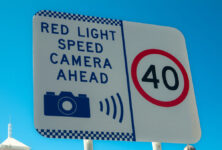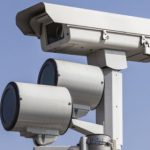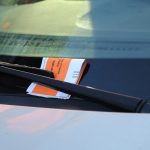I’ve been issued with a traffic fine. What should I do next?

Red light cameras, speeding and using a mobile phone while at the wheel are all examples of driving offences in New South Wales which lead to hefty fines, while parking in the wrong spot or longer than permitted can also lead to financial penalty.
A fine can be issued to you by the local council, a transport NSW transit officer or a police officer, and enforced by Revenue NSW, the government agency which handles penalties and infringement notices as well as the payment of fines.
Simply put, if you are alleged to have been caught breaking the rules, you’ll be issued with a fine or penalty notice. Some offences also come with demerit points, an accumulation of which can lead to a demerit point suspension.
Often, drivers can be surprised and frustrated when they receive a fine, because many offences in New South Wales are detected by roadside cameras, and the fine is often issued many weeks after the offence allegedly took place.
If you know you’re in the wrong, the easiest and quickest way to deal with the situation is often to pay the fine and get it over and done with.
Failing to pay by the due date
If you fail to pay by the due date, you’ll be issued with a reminder notice which directs you to pay the fine within 28 days.
If you fail to do that, you can be charged an ‘overdue’ fine of $65 on top of the original fine, or $25 if you are under the age of 18.
If you fail to pay at that point, there are often further consequences. Revenue NSW can issue an enforcement order, and this can result in the suspension or cancellation of your driver licence, cancellation of your vehicle registration, or court action to get a property seizure order.
If a court order is not complied with, then some of the consequences may include an order which includes community service which, if breached, can even lead to a prison sentence.
Financial hardship
From 1 July 2020, the New South Wales Government implemented changes aimed at making the payment of fines easier for anyone experiencing financial hardship.
A fifty percent reduction in the fine may apply to Centrelink payment recipients (including anyone receiving JobKeeper during the COVID-19 pandemic).
To have your personal circumstances considered, you must contact Revenue NSW and they will conduct an assessment of your situation to see whether the fine can be paid in full on a payment plan, or resolved through a work development order, which allows people to reduce their fines in exchange for unpaid work or participation in courses or treatment programs.
Appealing the fine
If you believe that you have been fined in error, or that there were special circumstances which led to the offence that mean you have been fined unfairly; for example, you weren’t driving the car at the time of the alleged offence, then you can request a review as outlined in Division 2A of the Fines Act 1996.
You can do this over the phone, or with a traditional posted letter, but the easiest way is online. You need:
- proof of your identity such as your address, date of birth or driver licence number
- your penalty notice number
- the date of the offence
- any supporting evidence (examples and more information is available in the Review Guidelines).
There are three potential outcomes of such a review: the penalty remains, you are let off with a caution, or the penalty is cancelled.
Going to court
You can also elect to challenge the fine in court, but you cannot do this while your fine is under review. You should be aware that there are costs involved with going to court and a court can impose greater penalties if you are ultimately found guilty of an offence.
If you are considering challenging the fine, or the outcome of the review, then seek professional legal advice from an experienced, specialist traffic lawyer before proceeding.
Once you ‘elect’ to contest the fine, the matter will proceed to court.







